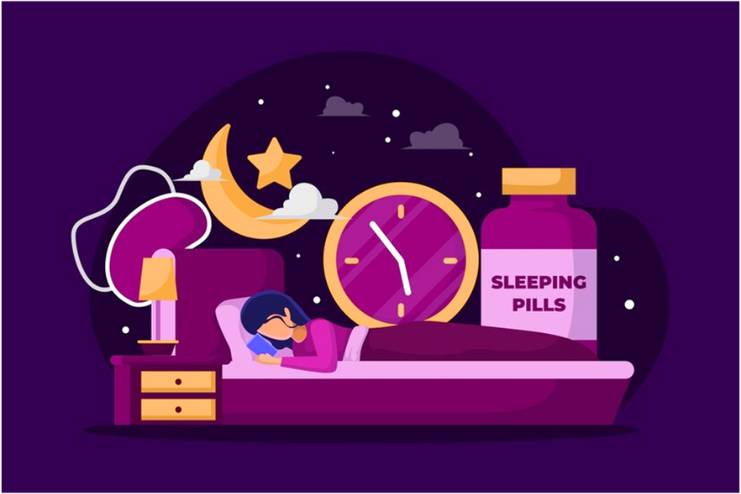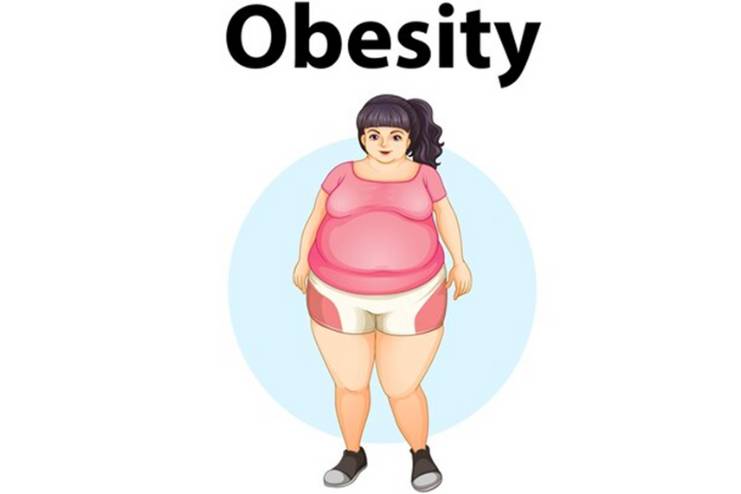Affiliate Disclaimer
Some links in this article are affiliate links. We may earn a small commission if you make a purchase through these links, at no extra cost to you. We only recommend products we find useful to our readersSleep disorders are becoming increasingly recognized as major contributors to a variety of health issues, including diabetes. The prevalence of both conditions is on the rise globally.
This article explores the relationship between sleep disorders and diabetes, the mechanisms involved, risk factors, and possible solutions.
Understanding Sleep Disorders

Sleep disorders encompass a wide range of conditions that disrupt normal sleep patterns. Some of the most common sleep disorders include:
- Insomnia: Characterized by difficulty falling asleep, staying asleep, or waking up too early, insomnia can lead to inadequate rest and daytime fatigue. Chronic insomnia is associated with various health issues, including obesity, hypertension, and diabetes.
- Obstructive Sleep Apnea (OSA): A serious condition where breathing repeatedly stops and starts during sleep due to blocked airways. OSA is linked to obesity and is associated with insulin resistance, which can lead to Type 2 diabetes.
- Restless Legs Syndrome (RLS): An uncontrollable urge to move the legs while resting, often accompanied by uncomfortable sensations. RLS can disrupt sleep quality, leading to fatigue and potential metabolic disturbances.
- Narcolepsy: A neurological disorder characterized by excessive daytime sleepiness and sudden sleep attacks, which can disrupt normal sleep patterns and contribute to other health issues.
Each of these disorders can lead to poor sleep quality, which has been linked to various metabolic issues, including diabetes.
The Link Between Sleep Disorders and Diabetes

There is a bidirectional relationship between sleep disorders and diabetes, where one condition can exacerbate the other. Here are several ways in which sleep disorders can influence the risk of developing diabetes:
- Insulin Resistance: Poor sleep quality, particularly due to sleep apnea, can lead to insulin resistance. Insulin resistance occurs when cells in the body become less responsive to insulin, causing elevated blood glucose levels. Over time, this can contribute to the development of type 2 diabetes. If you have sleep apnea, you are more likely to develop insulin resistance and type 2 diabetes compared to those without sleep apnea.
- Hormonal Imbalances: Sleep deprivation affects the secretion of hormones that regulate hunger and appetite, such as ghrelin (which stimulates appetite) and leptin (which signals satiety). Disruption in these hormones can lead to increased food intake and weight gain, both of which are risk factors for type 2 diabetes. If you experience poor sleep, you tend to consume more calories, especially from high-carbohydrate foods, further exacerbating the risk of diabetes.
- Increased Inflammation: Sleep disorders are associated with increased levels of inflammatory markers in the body, such as C-reactive protein (CRP) and interleukin-6 (IL-6). Chronic inflammation has been linked to the development of insulin resistance and, consequently, type 2 diabetes. If you have sleep apnea, you will exhibit elevated levels of inflammatory markers, which can contribute to metabolic disturbances.
- Stress and Cortisol Levels: Lack of sleep can elevate cortisol levels, the body’s primary stress hormone. Elevated cortisol levels can lead to increased blood sugar levels and fat accumulation, increasing the risk of diabetes. Chronic stress, compounded by poor sleep, can create a vicious cycle that negatively impacts metabolic health.
- Sleep Duration and Quality: Both insufficient sleep (typically less than 6 hours) and poor sleep quality are associated with an increased risk of developing diabetes. Adults who consistently experience sleep disturbances may find it challenging to maintain stable blood sugar levels. Those who sleep less than 6 hours a night are more likely to develop Type 2 diabetes compared to those who get adequate sleep.
Risk Factors for Sleep Disorders and Diabetes

Several overlapping risk factors contribute to both sleep disorders and diabetes, including:
- Obesity: Excess weight can lead to sleep apnea, which in turn can worsen metabolic health. Obesity is a significant risk factor for both sleep disorders and type 2 diabetes. The presence of abdominal fat can obstruct the airway during sleep, increasing the likelihood of sleep apnea.
- Sedentary Lifestyle: Lack of physical activity is associated with weight gain and poor sleep quality, increasing the risk for both conditions. Regular exercise is known to improve sleep quality and insulin sensitivity.
- Age: The prevalence of both sleep disorders and diabetes increases with age. Older adults are more likely to experience sleep disruptions and are at higher risk for type 2 diabetes due to factors such as hormonal changes and decreased physical activity.
- Chronic Stress: Psychological stress can lead to sleep disturbances and hormonal changes that contribute to insulin resistance. The interplay between stress and sleep is complex, as stress can exacerbate sleep problems, and poor sleep can increase stress levels.
- Poor Sleep Hygiene: Irregular sleep patterns, excessive screen time before bed, and an unsuitable sleep environment can negatively affect sleep quality, potentially increasing the risk of diabetes. Poor sleep hygiene practices, such as consuming caffeine close to bedtime or using electronic devices late at night, can disrupt the natural sleep-wake cycle.
Strategies for Managing Sleep Disorders and Reducing Diabetes Risk

Addressing sleep disorders can significantly impact diabetes prevention and management. Here are some effective strategies:
- Stress Management: Using stress-reduction techniques like mindfulness, meditation, and yoga can help improve sleep quality and metabolic health. You may include hobbies or spend time with loved ones to mitigate the effects of stress on sleep.
- Improve Sleep Hygiene: Practice a consistent bedtime routine, reduce screen time before sleep, and create a calm sleeping environment to improve sleep quality.
- Manage Weight: A healthy weight can decrease the risks of sleep apnea, improve sleep quality, and reduce diabetes risk. Small to moderate weight loss will greatly affect the severity of sleep apnea, causing improvements in insulin resistance.
- Regular Physical Activity: Regular exercise contributes to weight management, and it also facilitates better sleep. Aim for 150 minutes of moderate-intensity aerobic activity every week combined with strength training exercises.
- Monitor Blood Sugar Levels: Managing glucose levels will help identify patterns where sleep quality may have an impact on diabetes patients. For example, a diabetic patient can log the amount of sleep he or she gets and correlate this with how blood sugar levels develop to make effective management.
- Consider Sleep Aids Wisely: Some people consider using sleeping pills, which should be considered only after discussing with a healthcare provider to find safe options and possible side effects or interactions concerning diabetes management. However, lifestyle modifications often better address sleep issues in the long term.
- Be Informed: Educate yourself about the need for sleep as it relates to diabetes management. Knowledge can make a difference, and seek the right kind of help when needed.
- See a Doctor: Anyone experiencing chronic sleep disorders should seek a consultation with a physician. Sleep studies are often required to provide an appropriate diagnosis, such as sleep apnea, and they may have established treatments, like CPAP therapy. A physician can help pinpoint the problem underlying the problem. A treatment plan then may be designed especially for him or her.
Conclusion
The interlink between sleep disorders and diabetes has been proved in several studies. Poor sleep can lead to insulin resistance and increase your chances of developing type 2 diabetes. On the other hand, diabetes can make any sleeping disorder worse.
Proper diagnosis and treatment of sleep disorders are critical to you if you are susceptible or already undergoing diabetes control. Healthy lifestyle modifications, professional counseling, and good sleep habits can improve your sleep quality, health, and general well-being, thereby reducing the risk and consequences of developing diabetes.
In this Article




















